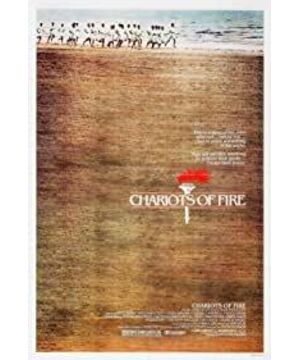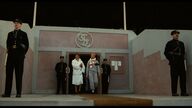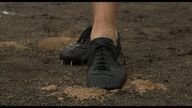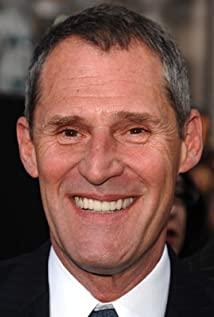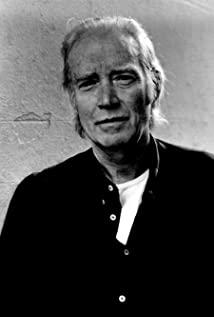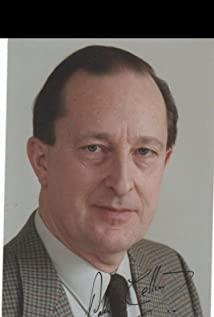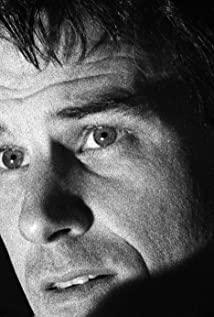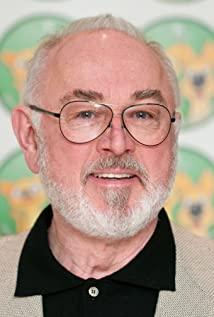"Chariot of Fire": A thought, life will run. British poet William Blake once wrote a poem called "Milton", "Bring me a shiny golden bow/Bring me an arrow of desire/Bring me My spear: Pull away the clouds/Bring me the chariot of fire/The war of homesickness will not stop/The sword in hand will not be loose/Until we build Jerusalem on the charming meadows of England." The poet uses his sonorous voice, It expresses the courage and wisdom to look forward to a better life after a desperate struggle with the dark reality of society. In a series of expressive poems that reluctant to admit defeat, the sports-themed film, directed by Hugh Hudson and titled "Milton" verses in the film "Chariot of Fire" is enough to make people talk about it. road. The film seems to tell the story of two young people, two kinds of life, but in fact it unintentionally outlines the embarrassing state of the duality of the noble and the bottom. It's just that in this dualistic "old" world with sports as its core, it is dispelled and presents a "new" world that transcends oneself, persists in faith, and perseveres in harmony to move forward. Perhaps there is only one door between discrimination and fairness, shame and bravery, failure and success, and it depends on whether we can pass through. From a unique perspective, the movie "Chariot of Fire" reveals to us that two young students of different backgrounds who have walked through this door are portrayed as Olympic heroes, and then they interpret the determination and courage of the heart and the running of life, even perseverance. The connotation of perseverance and the wisdom of pursuing excellence. This British director, famous for his documentaries, TV films and commercials, was adapted into the film "Chariot of Fire" in 1981 based on the real events of two British young sprinters participating in the 1924 Olympic Games in Paris in the 1920s. ", not only won the 54th The Oscars for best original screenplay, best film and other awards have also been widely reported, becoming a famous work of art that inspires people in the United Kingdom and the world for their beliefs, dreams, and Olympic spirit. The film focuses on two young people, working hard for a dream, finally winning the Olympic champion, and restoring the unknown hardships and melancholy behind them. Originally, this was only an amateur sports project in Cambridge University. Just like French fries need tomato to be more flavorful, these students take sports as the core, break down barriers, and develop an unyielding personality. Significantly, the film has clearly pointed out in the dean's speech at the freshman dinner, "Don't give up halfway because of any external force." In fact, the dean’s speech runs through the entire film, enabling the characters to find realistic responsibilities and strengths in the collision of youth and dreams, and become the strongest driving force for the protagonist to run. The poet Su Shi of the Northern Song Dynasty once wrote "Chao Cuo Lun", in which there is a saying, "The one who established great events in ancient times is not only the talent of transcendence, but also the perseverance." If it is placed in the movie "Chariot of Fire" "Among them, it can be said to be just right. In the film, the clock beats, 188 steps, 12 bells ring, and runs around, undoubtedly forming a space to prove one's own "single step in the world". If it is said that wanting to obtain equal rights after encountering racial discrimination is a choice that I have to face, then breaking the record of a successful Ring School Challenge that no one has ever challenged in 700 years is to fight for myself, win respect, and even perseverance. An incisive and vivid interpretation of Ba Zhizhi. At the same time, Eric Liddell, who has shown extraordinary athletic talent since he was a child, also rushed to the Olympic stadium like a beast, breaking through numerous resistances. To Harold Abraham and Eric Liddell, it is like a fish needs water to live freely, and a bird needs wings to soar into the sky. The "superego" merges into one, achieving the transcendence of the inner ideal and the pursuit of reality. In the film, the Scottish Highlands, the two-hundred-yard championship game, and the scene of running in the rain all depict Eric Liddell's obsession with running, even though he won the respect and love of people with his rugby performance. In the international sports competition, the champion Eric Liddell's speech in the rain at Edinburgh International University has a power to penetrate reality and kitsch. "Faith is like a race. It's hard work. It requires concentration and concentration... I don't have a secret to the game. Everyone has their own way. So where does the power to rush forward come from? From the heart." In my heart, it is not only simply derived from national consciousness, but also people’s love for the Olympics, but also shouts to themselves when they are running. Practice. It has become a belief of Eric Liddell, for youth, for dreams, for life, and for everyone's belief in the spirit of the Olympic Games. In addition, in the competition between the Scottish team and the French team, director Hugh Hudson used his mirror language style to show us all aspects of Eric Liddell's "running" madness and hard work. While running, Eric Liddell was knocked to the ground by his opponent, and then he got up and chased like a lion seeing its prey, and was the first to cross the finish line, making the viewers excited and cheering, even sitting aside Harold Abraham was also deeply shocked, saying, "I have never seen a runner with such a strong will to win. He runs like a beast, which makes me frightened." So, in the 1923 London race Harold Abraham couldn't help turning his head to look at Eric Liddell and stepped in with the gold medal. Thus, Harold Abraham worked hard to improve two yards under the guidance of coach Musabini. From the analysis of Charlie Pie Duke, known as the "California Cannonball", "New York Lightning" Jackson Shutz, and Eric Liddell, Harold Abraham saw the possibility of progress, which stems from the strong heart for success. eager. Feather-like light steps, high legs, tests, running in the mountains, etc. all show the hard work and pursuit of Harold Abraham. In this scene of training oneself, the director used intertwined clues to cut into the image of Eric Liddell's training, forming a kind of running dramatic tension. Of course, all these efforts are just for impacting the Olympics, defeating opponents on the arena, and even surpassing oneself. In 1924, at the Olympic Games in Paris, Harold Abraham defeated the two fastest American runners in the world, won the championship, and eventually became a British sports veteran. Eric Liddell, with his legs raised, his head held back, his mouth wide open, and his arms wide open, staggered across the 400-meter end point, not only overwhelming the crowd. , Also broke the world record. Cheers, hugs, and screams, and finally freeze at this moment. Everyone focuses their attention on them, as surprised and obsessed with the treasure found in Paul Coelho's "The Fantasy Journey of the Shepherd Boy". However, the brilliance of this end point is a gift obtained by a person after hard struggle and silent struggle. Whether it’s Eric Liddell’s resistance from his sister, asking him to manage the church, and conflicts with beliefs not being able to fight the Olympics on the Sabbath, or Harold Abraham’s defeat in the game, sitting alone in the observatory. Thinking is undoubtedly the most true depiction of a person's embarrassment when chasing dreams. It’s just that resistance or despair, just To break free, as long as you work hard, everything will develop in a good direction. In the end, Eric Liddell won the support of his sister, and Harold Abraham overcame numerous resistances and stood at the apex of the Olympic pyramid together. When the last shot of the run coincides with the first shot, everything is self-evident. With the gloomy sky, the tumbling sea, and the water flowing over your feet, a group of young people—Harold Abraham, Linxi, and Stamon—looked into the distance and ran freely without restraint. They are not afraid of waves or storms, they just run hard on the beach. Running is the most beautiful way of youthful years, the expression of youthful vitality, and the youth who overcomes death. I remember that as early as more than 2500 years ago, there were three sentences on the cliffs of ancient Greece: "If you want to be strong, run! If you want to be fit, run! If you want to be smart, run!" Yes, my friend , Run, don’t stop your pace, don’t be stingy with your pace, run firmly, just like with the vigorous electronic string in the film, with the more than two dozen headed by Harold Abraham Dressed in white clothes and white pants, barefooted runners, running towards the distance...
View more about Chariots of Fire reviews


